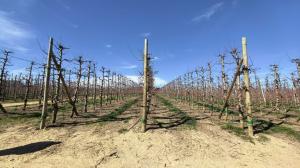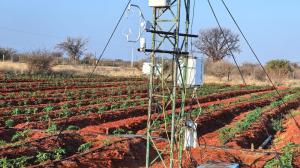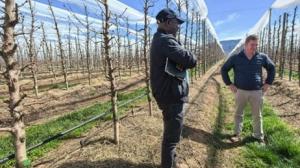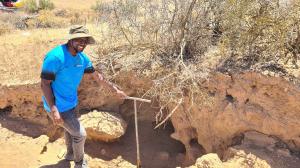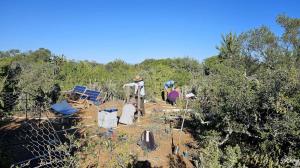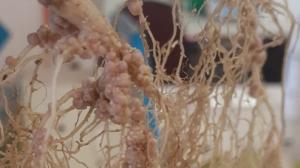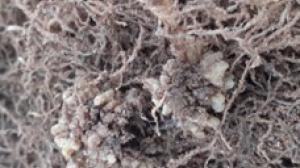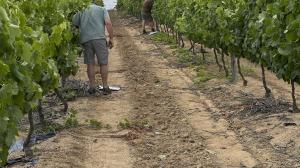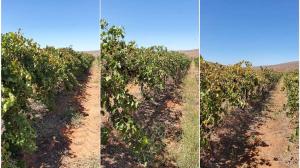Our Research
Advancing Sustainable Water and Soil Management in Agriculture
Our department is actively involved in several exciting research projects that promote sustainable agricultural practices. One of our key initiatives is the SA Wine–funded REGEN project, a multidisciplinary collaboration between the Departments of Agronomy, Viticulture, and Animal Science. This project focuses on understanding how cattle grazing influences soil health and physical properties in vineyards, helping to develop more regenerative farming systems.
We are also part of an ongoing tomato water-use project in Limpopo, conducted in partnership with the University of Limpopo and the Council for Scientific and Industrial Research (CSIR), which aims to improve water efficiency in crop production.
In addition, our team at the Water and Irrigation Centre of Knowledge (WICK) will soon begin a new Water Research Commission (WRC) funded project focused on measuring and managing water use in nectarine orchards, also in collaboration with the CSIR. These projects reflect our commitment to advancing sustainable water and soil management practices in South African agriculture.
Contact: Dr L Munjonji

- The Water and Irrigation Centre of Knowledge is currently an establishing research group under the Department of Soil Science.
- It aims to consolidate expertise in soil and water sciences to promote efficient and sustainable irrigation practices.
- The centre hopes to mobilise resource and foster interdisciplinary collaborations to advance research in water and crop management.
- In addition, WICK seeks to build capacity through training and mentoring of postgraduate students.
Exploring the Hidden Connections Between Ecosystems and Soils
We explore how healthy and disturbed ecosystems shape the way soils form and function over time. By working together across disciplines, we aim to uncover the complex connections between plants, animals, soils, and climate that drive the Earth’s biogeochemical cycles. Much of our work focuses on understanding how termites influence carbon storage, nutrient cycling, and salt movement within ecosystems. We’re also investigating how succulent-dominated landscapes store carbon and how resilient these systems are to disturbance. More recently, we’ve extended our research to explore how regenerative farming practices can build healthier soils, enhance carbon storage, and support sustainable ecosystem services.
Contact: Prof C Clarke
Uncovering the Power of Soil Microbiomes
We study the intricate relationships between soils, plants, and the microbial communities that live within them — from symbiotic partners to free-living microorganisms. These soil microbiomes drive key biogeochemical processes that regulate nutrient cycling, soil structure, water retention, and carbon storage. Because of their vital role in maintaining soil health, these communities are at the heart of our efforts to promote sustainable agriculture and protect environmental quality.
Contact: Dr E Muema
Building Healthy Soils with Organic Solutions
Our research focuses on improving soil health and sustainability in grape production. We study the long-term benefits of organic fertilizers made from plant and animal waste, examining how they affect soil quality, nutrient use, and crop yields. We also explore ways to increase nutrient availability in organic materials, such as phosphate rock, and investigate the use of biochar — produced from invasive plant species — to store carbon, reduce soil acidity, and improve how crops use water and nutrients. In addition, we assess how different soil textures influence soil health and are developing a framework for evaluating soil quality in vineyards. Our work also includes testing fertilizer and irrigation strategies to enhance nutrient efficiency and minimize the environmental impact of intensive farming.
Contact: Prof AG Hardie-Pieters
Understanding How Plants Cope with Environmental Challenges
Our research explores how plants interact with their environment — the soil, air, and water. We study how plants respond to environmental stresses such as limited water, focusing on how different irrigation levels at key growth stages influence their growth and productivity. We also look at how adjusting crop load affects plant performance and investigate the natural mechanisms that help crops tolerate drought.
Contact: Mr J Visser

